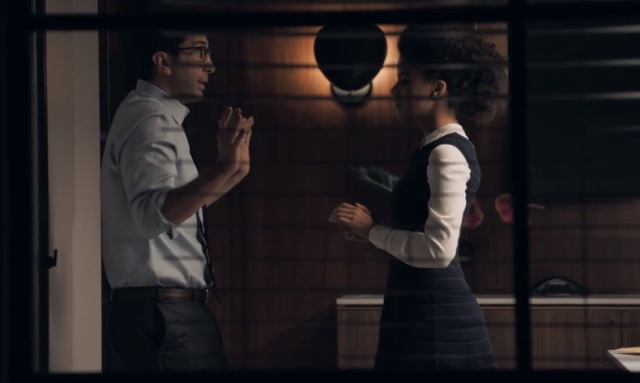David Schwimmer, best known for his portrayal of Ross in the long-running hit TV show “Friends,” recently made six short films showing viewers what sexual harassment looks like.
He made it as realistic as possible and showed a variety of settings where it might happen.
When my friend sent me the link to the That’s Harassment Facebook page, I wasn’t sure what I would find. After all, this is a campaign being spearheaded by a man who may not realize the full extent of harassment in women’s lives.
I won’t say that I was pleasantly surprised because it wasn’t pleasant at all. Watch three of the six below:
https://www.facebook.com/thatsharassment/videos/1996836786997326/
https://www.facebook.com/thatsharassment/videos/1653472278000447/
https://www.facebook.com/thatsharassment/videos/1653469821334026/
~
I discovered that Schwimmer was able to make films that accurately portrayed what harassment looks like and also how prevalent it is in our culture.
I started watching them while I was soaking in a bath after a long day of running errands. Soon, I found myself shaking—and not because my bath water had gone cold, but because only a few short days ago, I found myself in one of these scenarios.
I’d been working on one of my blogs while my son played with his trucks—when we heard the doorbell, and then a knock.
We don’t often get visitors so I assumed it was the postal service leaving a package, but instead it was an HVAC repairman who my landlord had scheduled to provide maintenance at the property I rented.
It all started out normally. I made polite conversation while he was in the room and then tried to get back to my job while he did his. But instead of leaving when he was done, he stayed several minutes longer to comment on my attractiveness, ask why I’m still single, and then when I made it clear I wasn’t interested, to claim that he was just looking for someone to hang out with rather than date. The insinuations were heavy.
Again, I stated that I wasn’t interested. Still, he didn’t leave.
I grew increasingly uncomfortable because this is my home, a place where I should feel safe. Instead, someone—who knows where I live and that I live alone with my kids—continued to pursue the subject and asked if he could write his number on the white board I keep on the wall.
After having to repeatedly say no to further advances, he finally left, leaving me feeling uncomfortable. And also incredibly sad—because he probably didn’t see anything problematic about that situation.
That’s why the videos that Schwimmer produced are so important right now.
The #metoo and #timesup movements have created a conversation starter of sorts, and sexual harassment—what it looks like, its prevalence, its victims, and its perpetrators—needs to be a part of that conversation. It’s not all about rape, molestation, or exposing one’s genitalia to someone else. It’s also about those heavy insinuations, the “flirting” that isn’t welcome but doesn’t stop, and the abuse of power between employers and employees. It’s the everyday catcalls that still happen or telling a woman who’s minding her own business that she should smile. It’s the thousands of insidious things that women have to deal with each day just to live in this world.
I don’t know a woman who couldn’t pinpoint when it first happened to her and how it made her feel, and who couldn’t sit for hours and recall all the times that she’s dealt with it since that first time.
And it’s a conversation that’s important to have with men. And one that men should be having among themselves. This is the time to talk about what it looks like and how we can stop it. This isn’t about painting all men with the same brush, but it is about educating them on what harassment looks like so that they know whether or not they are engaging in any of these behaviors.
We can’t create real change if there isn’t a true understanding of the problem.
No, it’s not comfortable. I know that I cringed as I watched these videos unfold—until I saw one that hit so close to home that I could no longer look away. Because I didn’t want to call that harassment. It made me angry, and it made me feel uncomfortably vulnerable.
But the #timesup on looking away from the things that make us uncomfortable. We must invite those uncomfortable conversations in—so that we have fewer victims of harassment in the future.
~
Author: Crystal Jackson
Image: Facebook Video
Editor: Catherine Monkman
Copy Editor: Callie Rushton
Social Editor: Callie Rushton









Read 0 comments and reply